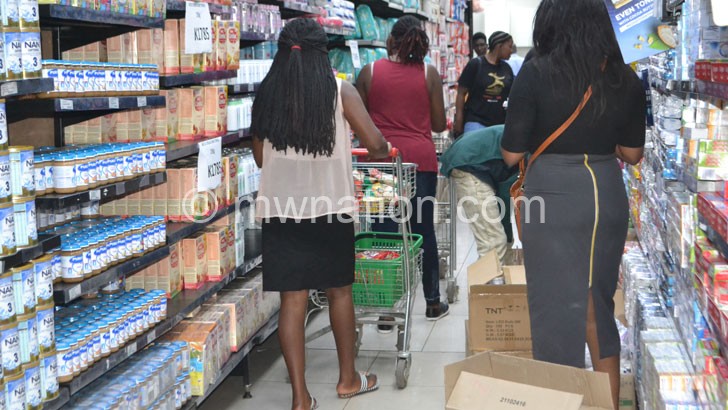Match policies to tame prices—IMF
The International Monetary Fund (IMF) has urged authorities to match fiscal and monetary policies, observing that the two variables can help to tame Malawi’s runaway inflation.
In its latest 2023 Fiscal Monitor, the global lender said while priority remains achieving a reduction of inflation in tackling the cost of living crisis, fiscal policy measures should also be employed.

Reads the report in part: “When the central bank acts alone without the support of fiscal policy, they need to hike interest rates substantially to fight inflation. Fiscal tightening makes it possible to increase interest rates by less to contain inflation.
“But to safeguard the poor who benefit more from public services, cuts in spending must be combined. This strategy results, by design, in no drop in consumption for the poor, but also in a lower decline in overall consumption.”
The IMF said least developed countries such as Malawi have been hit by the largest cost of living crisis on account of rising inflation, which has come amid limited capacity to cope.
It said in Malawi where the sovereign debt exceeds 50 percent of gross domestic product (GDP) currently pegged at K12 trillion, this affects inflation and has an impact on the public debt.
Meanwhile, driven by both food and non-food price pressures, Malawi’s year-on-year headline inflation rate has been on the rise, moving from 13 percent in February 2022 to 26.7 percent in February 2023, according to National Statistical Office data.
Speaking in an interview yesterday, economist Exley Silumbu said the monetary policy is overburdening fiscal policy and it will require authorities to overhaul the entire economic system to achieve their objectives.
“Instead of overburdening monetary policy, we need to take a critical look at the extent to which the country allocates resources efficiently and effectively,” he said.
On his part, economic statistician Alick Nyasulu said that price stabilisation can be achieved through a policy mix.
The IMF observations come at a time the Malawi Government is grappling with high debt levels, with public debt hovering at K7.9 trillion as at December 2022 or 69.93 percent of GDP, causing the country to be in debt distress.
Out of this stock, K4.43 trillion is domestic debt, which is 114 percent of the total budget while K3.47 trillion is external debt, an equivalent of 90 percent of the total budget.
Economic analysts say borrowing by government is deemed to be sustainable when it is below 50 percent of GDP, comprising domestic borrowing of not beyond 20 percent of the GDP and external borrowing not exceeding 30 percent of the broadest measure of economic activity.
Monetary policy is a process by which a monetary authority, usually a central bank, controls the quantity of money in circulation for purposes of attaining stability and economic growth objectives of an economy.
On the other hand, fiscal policy entails use of government revenue collection and expenditure to influence macroeconomic conditions. n





